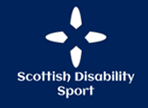KEEPING OUR SPORT SAFE
Paddle Scotland is committed to ensuring that participation in paddlesport is a positive and safe experience at any level. Everyone that takes part in our sport should be able to do so in a safe, supportive and enjoyable environment, free from bullying, harm or abuse.
What is safeguarding?
The term safeguarding is used to denote measures to protect the well-being and human rights of children (under 18 years old) and protected/vulnerable adults from abuse, harm and neglect.
Who needs safeguarding?
Safeguarding applies to everyone, and it is each person’s responsibility to make sure that the most vulnerable people within our society are protected from harm.
Children, young people, and vulnerable adults may require more safeguarding support and consideration. This includes adults who may receive help from care teams, as well as adults who have mental health conditions, learning or physical disabilities.
Policies and procedures
Paddle Scotland has worked with Paddle UK to develop guidance and templates around safeguarding, safe recruitment and safe deployment. Please find our Safeguarding Policy here and view all other policies on our dedicated Policies page.
For details on Standards for Deployment and PVGs, please visit the dedicated pages.
Paddle Scotland support
Please do not hesitate to reach out to the Paddle Scotland Safeguarding Lead at any time using the safeguarding@paddlescotland.org.uk email address. Additional contact details may be found here.
Responding to a concern
If you are concerned about the wellbeing of an individual and think it could be a safeguarding concern, please do not delay in reporting your concern. For guidance, please download our procedure (updated xx).
Types of concerns
The response will depend on the level of concern. Please find definitions below:
Low Level Concern (Niggle):
A concern or allegation that does not meet the harm threshold. The term ‘low-level’ concern does not mean that it is insignificant. A low-level concern is any concern – no matter how small, and even if no more than causing a sense of unease or a ‘nagging doubt’ – that an adult working/volunteering with children may have acted in a way that:
- is inconsistent with an organisation’s code of conduct, including inappropriate conduct outside of work; and
- does not meet the harm threshold; or is otherwise not serious enough to merit a referral to statutory agencies.
A behaviour niggle can also be when a young person has displayed challenging behaviour which has impacted on them, volunteers, staff or other young people. Behaviour is communication and usually challenging behaviour is a sign that something is going on in that young person’s life.
Child Wellbeing Concern
Concerns which, in isolation, do not always meet the threshold for a child protection referral to social work or police but still have an impact on the wellbeing of the child or young person and require attention. Examples may include: bullying, mental health concerns, bereavement, family separation and self-harm or parents pushing their child too hard in sport.
There may also be scenarios where a volunteer or member of staff could have an impact on the wellbeing of a child or young person due to their poor practice. Examples may include shouting aggressively, punishing children and young people through extra drills/exercises, singling children and young people out in front of peers for minor things such as leaving kit behind, or communicating with children and young people through a personal social media account.
It is important to note that child wellbeing concerns may, with further exploration, or over time, escalate to become more significant child protection concerns and therefore it is important to respond appropriately and at the earliest opportunity.
Child Protection Concern
Concerns for children or young people who are at risk of, or suffering, significant harm or abuse. Child protection matters are reported to police or social work. Examples may include physical abuse, neglect, sexual abuse, radicalisation, emotional abuse, trafficking or sexual exploitation.
REPORT A SAFEGUARDING CONCERN HERE.
If you want to report a concern or you need help or advice, please contact our Safeguarding Lead:









